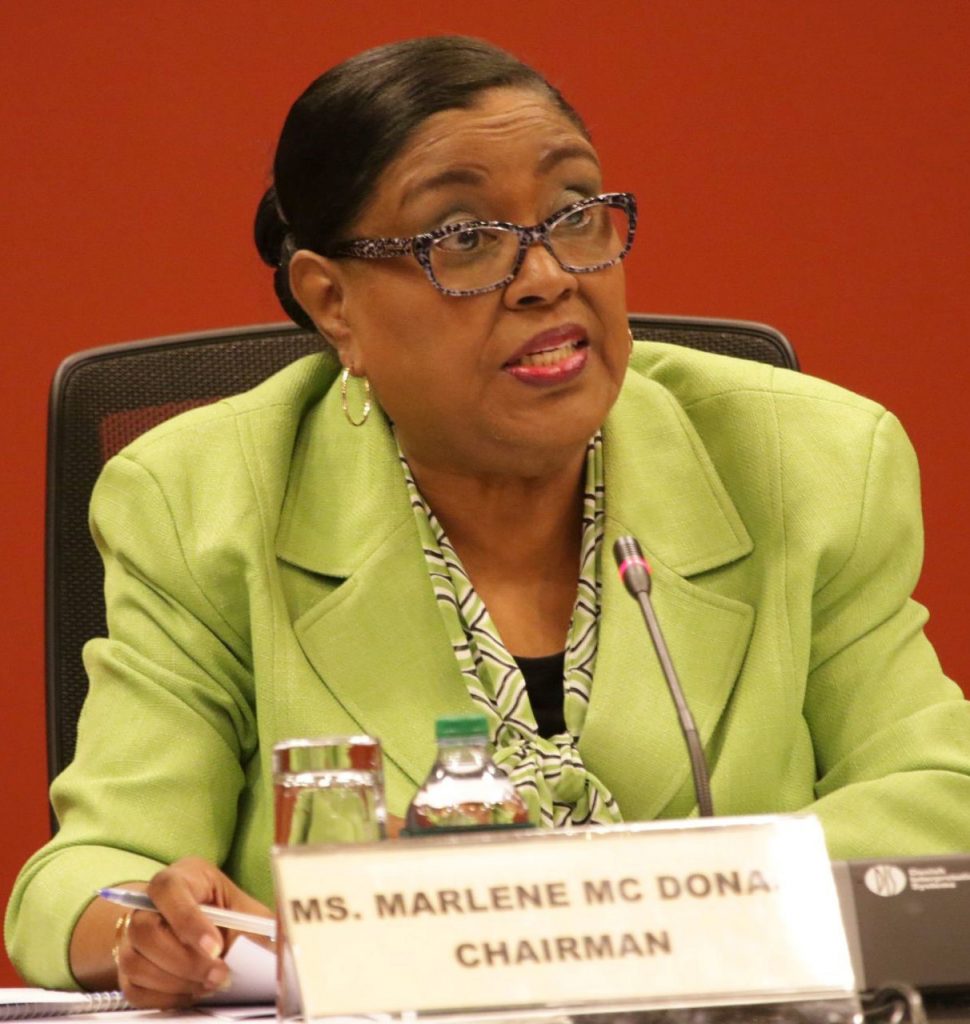(Trinidad Guardian) A total of 120,055 Caricom nationals were allowed entry to T&T in 2018—but barbers beauticians, security guards and agricultural workers whom regional leaders recently proposed for regional free movement, can’t get this yet since it isn’t finalised.
The facts were given on Wednesday by acting permanent secretary in the Ministry of Foreign Affairs Rita Toussaint when she and ministry officials appeared before Parliament’s Foreign Affairs oversight committee. The team scrutinised progress on Caricom’s Single Market and Economy (CSME) for the first time.
But the team, which sought to obtain information on how T&T’s benefited from CSME implementation and progress on the free movement of labour, services and goods, had to repeatedly seek information from ministry officials who didn’t have facts at hand—and team members didn’t hide their feelings about the failure.
Committee chairman Marlene McDonald told Toussaint at one point: “We want to find out what progress we’re making with CSME—whether going forward, static or going backwards! If we don’t know if we’re progressing, we wasting time! We need information to inform us about the policies and laws we may need ahead!”
Toussaint said the free movement thrust has expanded the labour pool and fostered greater competition among the labour force. She said CSME’s right of establishment aspect also allowed bigger space for increased investment and business opportunities.
She was unable to say how successful T&T nationals’ bid to get Caricom jobs has been but, “There’s been a large number of nationals coming to the Ministry seeking Caricom Skills Certificates, so there’s a measure of success for nationals and for Caricom residents also.”
Toussaint indicated that 4,000 Caricom nationals applied for Skills Certificates issued by T&T since 2006 when CSME was implemented.
But she said T&T hasn’t yet passed legislation to allow the second category of workers in Caricom’s free movement policy – nurses, teachers, artisans etc – and such people are currently operating on arrangement only. Deadline for legislation has been extended to July.
The latest category of workers—barbers, beauticians, etc—whom Caricom leaders proposed last December, for free movement access, cannot get this yet since a decision must be taken on requirements for such people. T&T and other states must also pass legislation to allow these workers, she added.
Toussaint said she didn’t know of complaints about people being denied entry. She said there’ve been two reports of this —one in January and another at the end of 2018— and also didn’t have reports of complaints of people not getting jobs.
Foreign service officer Saschele Griffith said complaint forms are available at airports for those denied. Toussaint didn’t have figures on skill certificate applications. She also said there’s no mechanism to capture information on those who reached out to the Ministry – following a CSME information thrust- to apply or to pursue skills certificates.
Committee member Shamfa Cudjoe, saying she was troubled by lack of numbers for applicants and other information, said, “Who’s keeping track on (CSME)? Is this really on or it is fancy talk from our leaders …we need to be in a position to say what’s happening. If the Ministry doesn’t have the information, who does?”
McDonald said she’d expected a little more on some issues and while National Security and Immigration could have given some information, “…..Foreign Affairs is the overarching policy ministry on (CSME),”
Committee member Maria Dillon- Remy said the ministry should have mechanisms on that denied entry and not rely on people filing complaints only. Committee member Paula Gopee-Scoon added the ministry was expected to be the keeper of the entire CSME agenda. Toussaint assured there was “enthusiasm” in the ministry for the process.






